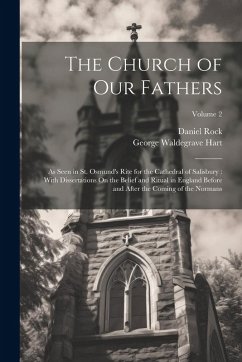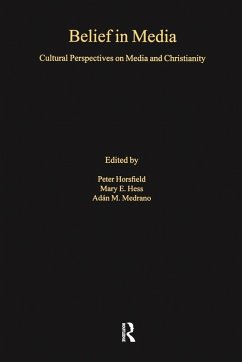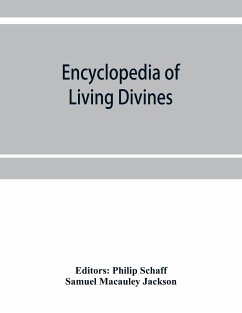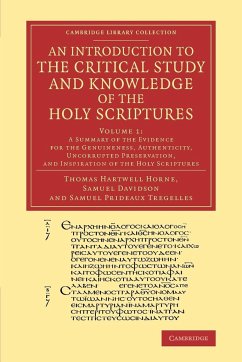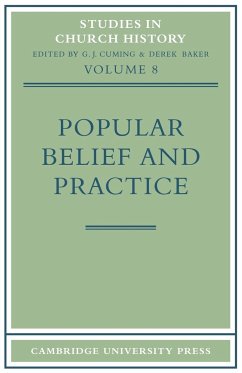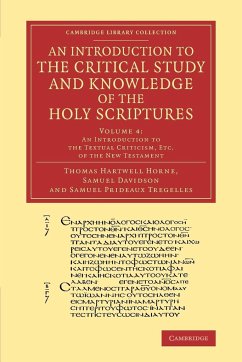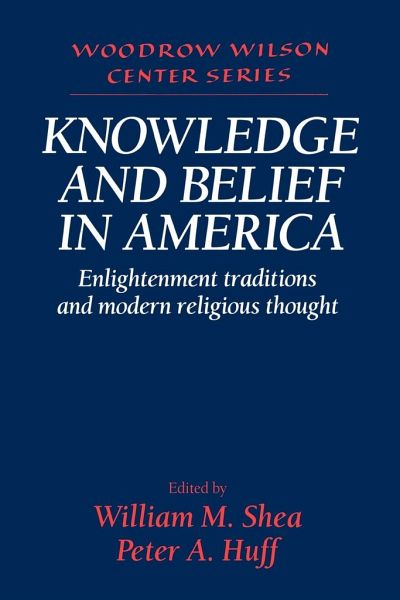
Knowledge and Belief in America
Enlightenment Traditions and Modern Religious Thought
Herausgeber: Huff, Peter A.; Shea, William M.; Hamilton, Lee H.
Versandkostenfrei!
Versandfertig in 1-2 Wochen
41,99 €
inkl. MwSt.

PAYBACK Punkte
21 °P sammeln!
This volume of essays explores the interaction between Enlightenment ideals and American religion.The Enlightenment values of individual autonomy, democracy, and secularizing reason conflict with the religious traditions of community, authority, and traditional learning. Yet in American history the two heritages have been intertwined since the colonial era: the development of the Enlightenment has been influenced by community-based thinking and religious institutions have adopted to an extent critical methods and a democratic ethos even within their own walls. This volume unites the work of a ...
This volume of essays explores the interaction between Enlightenment ideals and American religion.
The Enlightenment values of individual autonomy, democracy, and secularizing reason conflict with the religious traditions of community, authority, and traditional learning. Yet in American history the two heritages have been intertwined since the colonial era: the development of the Enlightenment has been influenced by community-based thinking and religious institutions have adopted to an extent critical methods and a democratic ethos even within their own walls. This volume unites the work of a distinguished group of theologians, historians, literary critics, and philosophers to explore the interaction between Enlightenment ideals and American religion. The Enlightenment's effect on the major religious traditions, including the Catholic Church, Evangelical Protestantism, and Judaism, is examined. Also highlighted is religion in the thinking of such representative figures as Edwards, Franklin, Emerson, Lincoln, Santayana, and the Pragmatists, Stevens and Eliot.
Table of content:
Introduction; Part I. Enlightenment and Religious Traditions: 1. Knowledge and belief in American public life; 2. Enamored against thee by these strange minds: recovering the relations between the Enlightenment in nineteenth- and twentieth-century American literary culture; 3. The rise and long life of the Protestant Enlightenment in America; 4. American Catholicism and the Enlightenment ethos; 5. Organizing the past; Part II. Enlightenment and Representative Figures: 6. Puritanism and Enlightenment: Edwards and Franklin; 7. Emerson's constitutional amending: reading 'fate'; 8. Lincoln and modernity; 9. Stuck between debility and demand: religion and Enlightenment traditions among the pragmatists; 10. Wallace Stevens, T.S. Eliot, and the space between them; Part III. The End of the Enlightenment: 11. The Enlightenment is not over; 12. Modernity, anti-modernity, and post-modernity in the American setting; 13. Are we beyond the Enlightenment horizon?
The Enlightenment values of individual autonomy, democracy, and secularizing reason conflict with the religious traditions of community, authority, and traditional learning. Yet in American history the two heritages have been intertwined since the colonial era: the development of the Enlightenment has been influenced by community-based thinking and religious institutions have adopted to an extent critical methods and a democratic ethos even within their own walls. This volume unites the work of a distinguished group of theologians, historians, literary critics, and philosophers to explore the interaction between Enlightenment ideals and American religion. The Enlightenment's effect on the major religious traditions, including the Catholic Church, Evangelical Protestantism, and Judaism, is examined. Also highlighted is religion in the thinking of such representative figures as Edwards, Franklin, Emerson, Lincoln, Santayana, and the Pragmatists, Stevens and Eliot.
Table of content:
Introduction; Part I. Enlightenment and Religious Traditions: 1. Knowledge and belief in American public life; 2. Enamored against thee by these strange minds: recovering the relations between the Enlightenment in nineteenth- and twentieth-century American literary culture; 3. The rise and long life of the Protestant Enlightenment in America; 4. American Catholicism and the Enlightenment ethos; 5. Organizing the past; Part II. Enlightenment and Representative Figures: 6. Puritanism and Enlightenment: Edwards and Franklin; 7. Emerson's constitutional amending: reading 'fate'; 8. Lincoln and modernity; 9. Stuck between debility and demand: religion and Enlightenment traditions among the pragmatists; 10. Wallace Stevens, T.S. Eliot, and the space between them; Part III. The End of the Enlightenment: 11. The Enlightenment is not over; 12. Modernity, anti-modernity, and post-modernity in the American setting; 13. Are we beyond the Enlightenment horizon?







